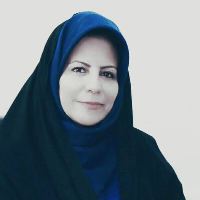Releasing the Imagination and Significant Experience: Maxine Greene's Aesthetic Education Approach
Author(s):
Abstract:
The aim of this study was to analyze Maxine Greene's (1981-1917) views in three areas of significant experience, imagination and aesthetic education. It was a descriptive study with a qualitative approach. After reviewing the available sources, Greenes seminal views about developments in the field of curriculum and aesthetic education were collected and then analyzed . The results showed that Green's idea of releasing imagination has brought about a new approach to aesthetic education. In this approach, she emphasizes that imagination which was often neglected in the mainstream educational system, should be employed in the learning process as a means to transfer perceptions, a lived experience and an opportunity for creativity. Her idea is based on giving freedom to the students in the imagination of possible opportunities, making a curriculum meaningful based on individual experiences and accessing new areas. These aesthetic experiences will result in a comprehensive awareness to see the phenomena from a different perspective. Greene advocates a phenomenological approach to aesthetic experience because it is an interpretation based on a particular territory of the world .Therefore, aesthetic education is a specific educational function which results in the learners aesthetic literacy that is a comprehensive ability to understand, interpret, and judge.
Keywords:
Language:
Persian
Published:
Quarterly Journal of New Thoughts on Education, Volume:12 Issue: 4, 2017
Pages:
129 to 160
https://magiran.com/p1674105
سامانه نویسندگان
مقالات دیگری از این نویسنده (گان)
-
A Study of the Epistemological Foundations of Transcendent Theosophy and Extracting its Implications for Aesthetic Education (Cultural and Art Domains)
Zohreh Mottaghi , Hassanali Bakhtiar Nasrabadi *, Mohammad Najafi , Seyyed Mahdi Emamjomeh
Journal of Applied Issues in Islamic Education, -
The Role of Critical Thinking Components in Predicting Student's Self-Efficacy (Case Study: Isfahan University of Medical Sciences)
Z. Motaghi *, M. Najafi, K. Nosrati, M. Hatami
New Educational Approaches,



